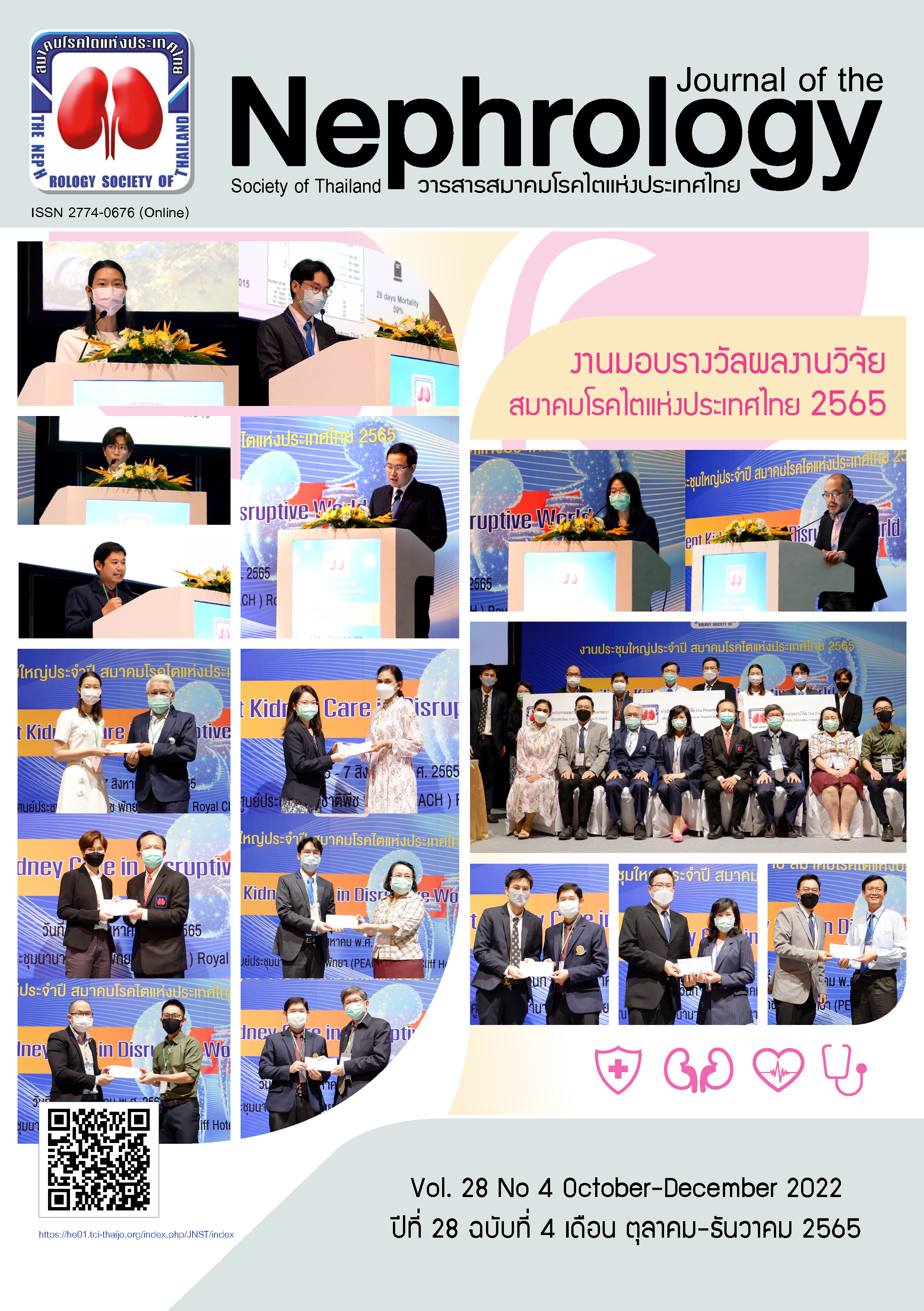Epidemiology and Long-Term Outcomes of Severe Acute Kidney Injury in Thailand: A Prospective Multicenter Study
Main Article Content
Abstract
Background: Acute kidney injury (AKI) contains a high short-term morbidity and mortality. However, little is known regarding long-term outcomes. We aimed to evaluate 1-year major adverse kidney events (MAKE365) in patients with severe (stage 3) AKI by kidney recovery patterns at 28 days or hospital discharge.
Methods: We analyzed the data from InSEA RRT registry—a multicenter prospective cohort study conducted between January 2021 and January 2022. Critically ill patients with stage 3 AKI as defined by KDIGO were enrolled and classified by recovery status after 28 days or at hospital discharge as early, late, and nonrecovery. Primary outcome was MAKE365 which is a composite of persistent kidney dysfunction, long-term dialysis, and all-cause mortality on day 365 after enrollment.
Results: A total of 1,534 patients from 14 hospitals across Thailand were enrolled. Among these, 755 (49%) patients died, 401 (51%) patients experienced early recovery, 188 (24%) late recovery, and 190 (24%) never reversed AKI. The incidence of MAKE365 was 68.4 per 100 person-years of all patients. Nonrecovery were more likely to develop MAKE365 than recovery (adjusted HR 4.24 ;95% CI, 3.20-5.61; P<0.001). The incidence of new CKD and CKD progression were 82.8 and 42 per 100 person-years. Patients with older, cancer, mixed ICU, and no nephrologist follow-up were also at risk for MAKE365.
Conclusions: Nonrecovery AKI was independently associated with adverse long-term outcomes. Recognition and close follow-up of patients with non-recovered AKI is crucial. Novel intervention might improve long-term outcomes and need further study.
Article Details

This work is licensed under a Creative Commons Attribution-NonCommercial-NoDerivatives 4.0 International License.
This article is published under CC BY-NC-ND 4.0 license, which allows for non-commercial reuse of the published paper as long as the published paper is fully attributed. Anyone can share (copy and redistribute) the material in any medium or format without having to ask permission from the author or the Nephrology Society of Thailand.
References
N/A


